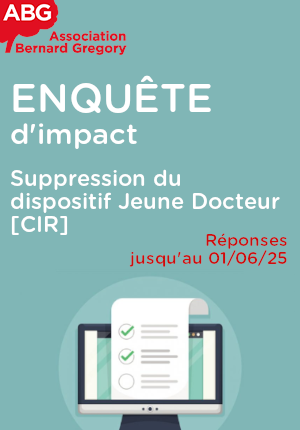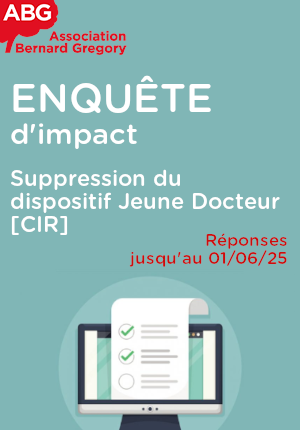Planification multicritère des réseaux de distribution sous incertitude // c
|
ABG-131940
ADUM-65988 |
Sujet de Thèse | |
| 14/05/2025 |
Université Grenoble Alpes
Grenoble cedex 1 - Auvergne-Rhône-Alpes - France
Planification multicritère des réseaux de distribution sous incertitude // c
- Electronique
Planification, Multi-critère, Analyse de Cycle de Vie, Optimization, Modélisation, incertitudes
Planning, Multicriteria, Life Cycle Assessment, Optimization, Modeling, Uncertainties
Planning, Multicriteria, Life Cycle Assessment, Optimization, Modeling, Uncertainties
Description du sujet
La recherche proposée se concentrera sur la gestion des incertitudes et des risques dans une conception multicritères du réseau. L'objectif est de développer un algorithme qui non seulement identifie la solution optimale, mais qui trace également la voie à suivre pour intégrer l'infrastructure existante à la solution optimale. Il s'agit de déterminer quelle solution ou quel changement doit être déployé conformément au calendrier optimal.
En intégrant des critères environnementaux et si possible sociaux en plus des critères techniques et économiques traditionnels, ce projet de recherche devrait compléter le niveau d'information disponible pour décider de déclencher un investissement, de demander une flexibilité ou de promouvoir une autre action de développement du réseau.
La problématique est d'ordre méthodologique. La mise en œuvre des techniques d'éco-conception pour les composants physiques d'un système de systèmes (le réseau électrique) nécessitera de trouver des compromis entre la précision des modèles, la pertinence des résultats, leur portée et les temps de calcul. C'est déjà un problème complexe à l'échelle d'un seul composant, et il faudra beaucoup de travail bibliographique, de compréhension et d'hypothèses, pour établir un ou plusieurs critères pertinents au-delà du calcul existant de la masse d'équivalent CO2 émise.
Les critères sociaux, quant à eux, devraient modéliser plusieurs phénomènes, tels que la diffusion des solutions sociotechniques dans le domaine public et la disponibilité effective de la flexibilité. Les compromis entre le coût et la qualité du service pour les utilisateurs devront être correctement discutés.
------------------------------------------------------------------------------------------------------------------------------------------------------------------------
------------------------------------------------------------------------------------------------------------------------------------------------------------------------
The proposed research will concentrate on managing uncertainties and risks in a multi-criteria design of the grid. The aim is to develop an algorithm that not only identifies the optimal solution but also outlines the effective path for integrating existing infrastructure with the optimal one. This involves determining which solution or change should be deployed in accordance with the optimal timetable.
By integrating environmental and possibly social criteria in addition to traditional technical and economic criteria, this research project should complete the level of information available when deciding whether to trigger an investment, request flexibility, or promote another grid development action.
As a matter of fact, the problematic is methodologic. Implementing eco-design techniques for physical components in a system of systems (the power grid) will require finding compromises between model accuracy, the relevance of results, their scope, and computation times. This is already a complex problem on the scale of a single component, and will require a great deal of bibliographical work, understanding and hypotheses, to establish one or more relevant criteria beyond the existing calculation of the mass of CO2 equivalent emitted.
Social criteria, for their part, will need to model several phenomena, such as the spread of socio-technical solutions in the public domain and the effective availability of flexibility. Trade-offs between cost and quality of service for users will need to be properly discussed.
------------------------------------------------------------------------------------------------------------------------------------------------------------------------
------------------------------------------------------------------------------------------------------------------------------------------------------------------------
Début de la thèse : 01/10/2025
En intégrant des critères environnementaux et si possible sociaux en plus des critères techniques et économiques traditionnels, ce projet de recherche devrait compléter le niveau d'information disponible pour décider de déclencher un investissement, de demander une flexibilité ou de promouvoir une autre action de développement du réseau.
La problématique est d'ordre méthodologique. La mise en œuvre des techniques d'éco-conception pour les composants physiques d'un système de systèmes (le réseau électrique) nécessitera de trouver des compromis entre la précision des modèles, la pertinence des résultats, leur portée et les temps de calcul. C'est déjà un problème complexe à l'échelle d'un seul composant, et il faudra beaucoup de travail bibliographique, de compréhension et d'hypothèses, pour établir un ou plusieurs critères pertinents au-delà du calcul existant de la masse d'équivalent CO2 émise.
Les critères sociaux, quant à eux, devraient modéliser plusieurs phénomènes, tels que la diffusion des solutions sociotechniques dans le domaine public et la disponibilité effective de la flexibilité. Les compromis entre le coût et la qualité du service pour les utilisateurs devront être correctement discutés.
------------------------------------------------------------------------------------------------------------------------------------------------------------------------
------------------------------------------------------------------------------------------------------------------------------------------------------------------------
The proposed research will concentrate on managing uncertainties and risks in a multi-criteria design of the grid. The aim is to develop an algorithm that not only identifies the optimal solution but also outlines the effective path for integrating existing infrastructure with the optimal one. This involves determining which solution or change should be deployed in accordance with the optimal timetable.
By integrating environmental and possibly social criteria in addition to traditional technical and economic criteria, this research project should complete the level of information available when deciding whether to trigger an investment, request flexibility, or promote another grid development action.
As a matter of fact, the problematic is methodologic. Implementing eco-design techniques for physical components in a system of systems (the power grid) will require finding compromises between model accuracy, the relevance of results, their scope, and computation times. This is already a complex problem on the scale of a single component, and will require a great deal of bibliographical work, understanding and hypotheses, to establish one or more relevant criteria beyond the existing calculation of the mass of CO2 equivalent emitted.
Social criteria, for their part, will need to model several phenomena, such as the spread of socio-technical solutions in the public domain and the effective availability of flexibility. Trade-offs between cost and quality of service for users will need to be properly discussed.
------------------------------------------------------------------------------------------------------------------------------------------------------------------------
------------------------------------------------------------------------------------------------------------------------------------------------------------------------
Début de la thèse : 01/10/2025
Nature du financement
Précisions sur le financement
Financement d'un établissement public Français
Présentation établissement et labo d'accueil
Université Grenoble Alpes
Etablissement délivrant le doctorat
Université Grenoble Alpes
Ecole doctorale
220 EEATS - Electronique, Electrotechnique, Automatique, Traitement du Signal
Profil du candidat
Nous recherchons un étudiant en master ou un ingénieur électricien ayant des compétences en mathématiques et un goût pour la méthodologie, capable de développer un point de vue systémique. Vous ne devez pas avoir peur de discuter avec des experts d'autres domaines (sciences environnementales et sociales) et vous devez être prêt à faire le lien entre leur travail et votre propre recherche. Des compétences en programmation informatique devraient être utiles pour la mise en œuvre du problème.
Niveau de français et d'italien requis : Aucune exigence. Le doctorat étant international, tout se fera en anglais.
Niveau d'anglais requis : Avancé : Vous pouvez parler la langue de manière plus complexe, spontanément et sur une variété de sujets. Vous interagirez avec des chercheurs de différentes nationalités (français et italiens).
We are looking for a master student or electrical engineer with mathematical skills and a taste for methodology, able to develop a systemic point of view. You should not be afraid of discussing with expert from other fields (environmental and social science) and willing to make the bridge between their work and your own research. Computer programming skills should be useful for the problem implementation. Level of French & Italian required: No requirement. As the PhD is international, everything will be done in English. Level of English required: Advanced: You can speak the language in a more complex way, spontaneously and on a variety of subjects. You will interact with researchers from different nationality (French and Italian).
We are looking for a master student or electrical engineer with mathematical skills and a taste for methodology, able to develop a systemic point of view. You should not be afraid of discussing with expert from other fields (environmental and social science) and willing to make the bridge between their work and your own research. Computer programming skills should be useful for the problem implementation. Level of French & Italian required: No requirement. As the PhD is international, everything will be done in English. Level of English required: Advanced: You can speak the language in a more complex way, spontaneously and on a variety of subjects. You will interact with researchers from different nationality (French and Italian).
30/05/2025
Postuler
Fermer
Vous avez déjà un compte ?
Nouvel utilisateur ?
Besoin d'informations sur l'ABG ?
Vous souhaitez recevoir nos infolettres ?
Découvrez nos adhérents
 Ifremer
Ifremer  Aérocentre, Pôle d'excellence régional
Aérocentre, Pôle d'excellence régional  Laboratoire National de Métrologie et d'Essais - LNE
Laboratoire National de Métrologie et d'Essais - LNE  Groupe AFNOR - Association française de normalisation
Groupe AFNOR - Association française de normalisation  Généthon
Généthon  Tecknowmetrix
Tecknowmetrix  Institut Sup'biotech de Paris
Institut Sup'biotech de Paris  CASDEN
CASDEN  CESI
CESI  Nokia Bell Labs France
Nokia Bell Labs France  MabDesign
MabDesign  ADEME
ADEME  PhDOOC
PhDOOC  TotalEnergies
TotalEnergies  ANRT
ANRT  MabDesign
MabDesign  ASNR - Autorité de sûreté nucléaire et de radioprotection - Siège
ASNR - Autorité de sûreté nucléaire et de radioprotection - Siège  ONERA - The French Aerospace Lab
ONERA - The French Aerospace Lab  SUEZ
SUEZ







